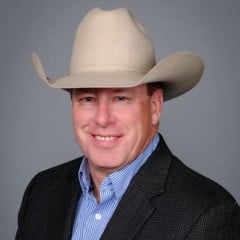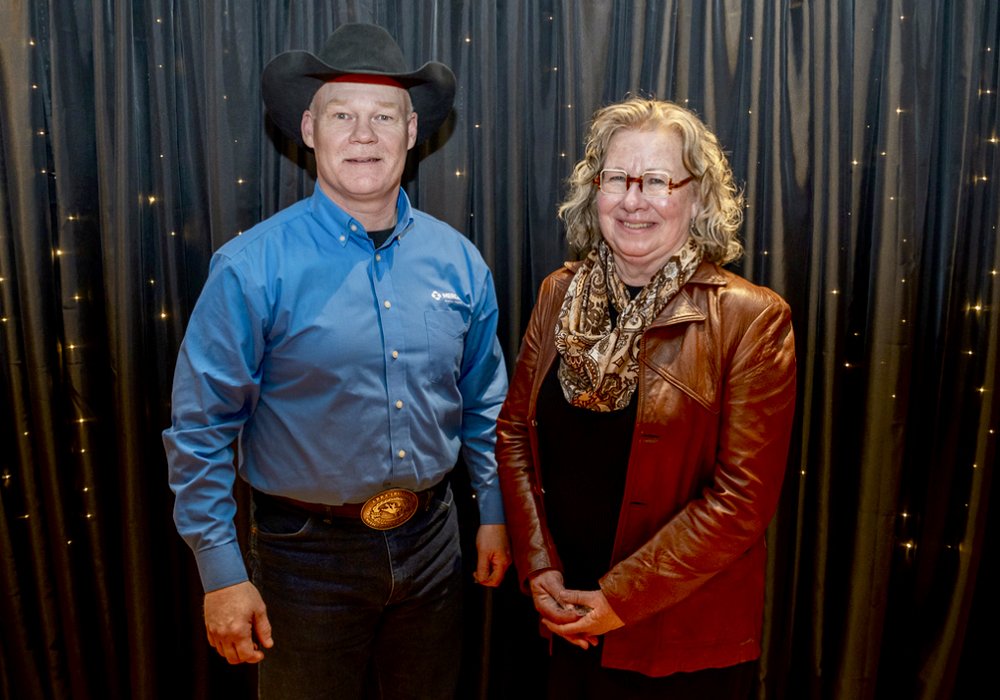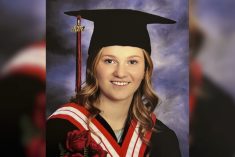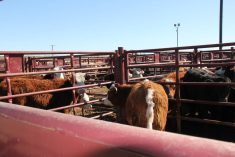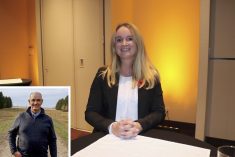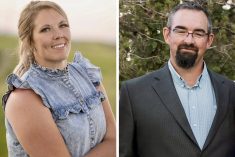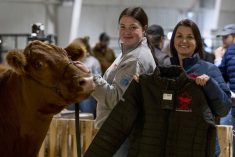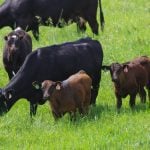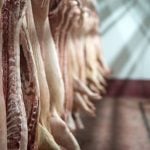Earlier this spring, Canadian Western Agribition recognized Eileen Davidson and Lee Sinclair for their 25 years of volunteer service.
Sinclair grew up in the Lloydminster, Sask. area. Mainly a town kid, he had access to the mixed farms of his family and friends and was there at every opportunity.
As his family was very involved with rodeo, Sinclair started out riding steers and moved up to the saddle bronc riding event. In 1989, he attended Lakeland College, where he competed on the rodeo team and graduated in 1991 with a diploma in herd health technology. In 1991, Sinclair received a rodeo scholarship to Montana State University, where he graduated with a degree in animal science.
Read Also
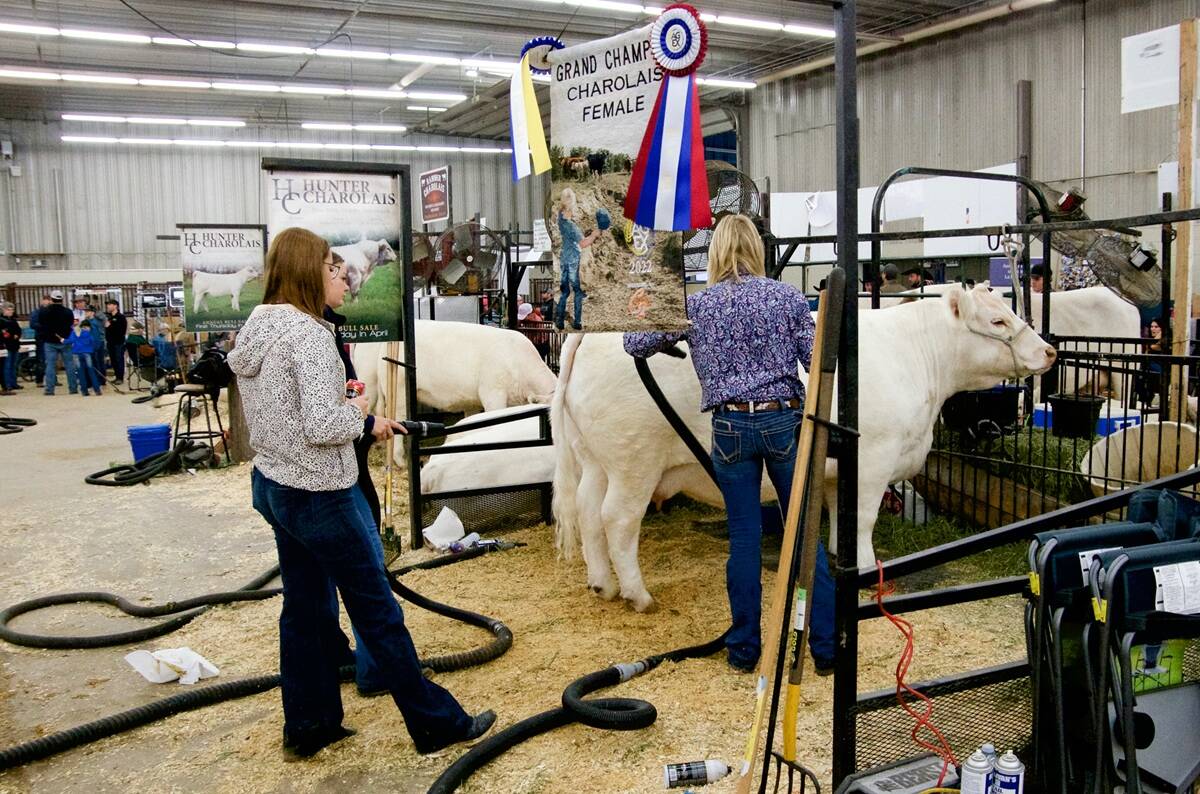
Purely Purebred: Condolences to the families of Greg Paranich and Ed Williams
News about people in the Canadian cattle industry
Sinclair spent his Christmas and summer breaks working part-time as a pen rider at an Alberta feedlot. It was during this time he became interested in the livestock handling concepts of Temple Grandin and Bud Williams. Sinclair is likely best known for his work with Merck Animal Health.
Davidson and her husband, Vernon, operate Davidson Gelbvieh at Ponteix, Sask. They have been attending Canadian Western Agribition in Regina since nearly its inception, over 50 years ago, with their family. Now they enjoy making the yearly trek with their family at Lonesome Dove Ranch (Ross and Tara Davidson and family), to compete and to visit with fellow cattle producers from both near and far.
Over the years Davidson has served on various committees at Agribition. Currently, she represents the Manitoba/Saskatchewan Gelbvieh Association on the beef committee.

